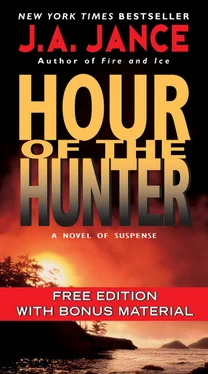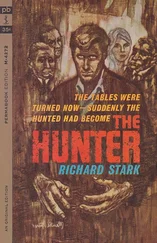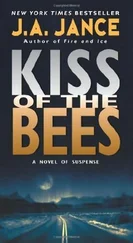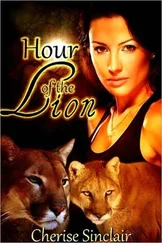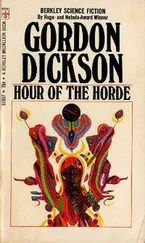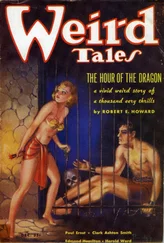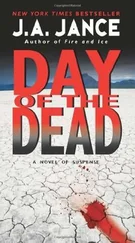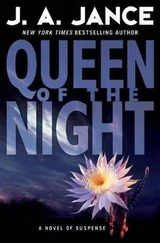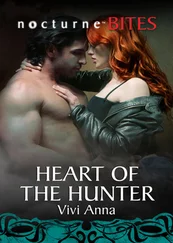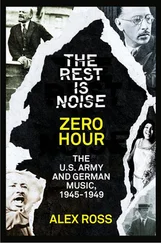J. JANCE - Hour of the Hunter
Здесь есть возможность читать онлайн «J. JANCE - Hour of the Hunter» весь текст электронной книги совершенно бесплатно (целиком полную версию без сокращений). В некоторых случаях можно слушать аудио, скачать через торрент в формате fb2 и присутствует краткое содержание. Жанр: Триллер, на английском языке. Описание произведения, (предисловие) а так же отзывы посетителей доступны на портале библиотеки ЛибКат.
- Название:Hour of the Hunter
- Автор:
- Жанр:
- Год:неизвестен
- ISBN:нет данных
- Рейтинг книги:5 / 5. Голосов: 1
-
Избранное:Добавить в избранное
- Отзывы:
-
Ваша оценка:
- 100
- 1
- 2
- 3
- 4
- 5
Hour of the Hunter: краткое содержание, описание и аннотация
Предлагаем к чтению аннотацию, описание, краткое содержание или предисловие (зависит от того, что написал сам автор книги «Hour of the Hunter»). Если вы не нашли необходимую информацию о книге — напишите в комментариях, мы постараемся отыскать её.
Hour of the Hunter — читать онлайн бесплатно полную книгу (весь текст) целиком
Ниже представлен текст книги, разбитый по страницам. Система сохранения места последней прочитанной страницы, позволяет с удобством читать онлайн бесплатно книгу «Hour of the Hunter», без необходимости каждый раз заново искать на чём Вы остановились. Поставьте закладку, и сможете в любой момент перейти на страницу, на которой закончили чтение.
Интервал:
Закладка:
“But, Davy. .”
“I’m going to sleep.”
Drained and rejected, Diana started to leave the room, but Davy called to her before the door closed. “Mom?”
“What?”
“How come everybody knew about my father but me?”
The hurt and betrayal in Davy’s voice squeezed her heart. “It was a terrible thing,” she told him. “You weren’t old enough to understand.”
“I’m old enough now,” he muttered fiercely into his pillow when the door clicked shut. “I am too.”
But he wasn’t. Not really. He lay awake for a long time after his mother left him, trying to understand why his father would have wanted to be dead so soon, why he hadn’t wanted to wait around long enough to meet his own son.
Davy wished he could have asked him. He really wanted to know.
Looks At Nothing was gone, leaving Rita alone with her memories of that long ago, fateful summer. Homesick, Understanding Woman had wanted to return to Ban Thak. It was too hot in Burnt Dog Village. She longed to be in Coyote Sitting where it was cool and where she would be among old friends for the coming rain dance. Hearing this, Father John generously offered a ride. They would leave one day and return the next. Surely, the nuns could spare Rita for that long.
When the big day came, Dancing Quail was excited to be going home for the first time since she had moved to Topawa earlier that spring. She wore new clothes, which she had purchased from the trading post with her own money. She looked forward to seeing other girls her age, to being included as one of them.
By now Dancing Quail had ridden in Father John’s touring car more than once. She was totally at ease. While Understanding Woman drowsed peacefully in the backseat, Rita chattered away in her much-improved English, pointing out the various sights along the way, telling Father John the Papago words for mountains and rocks, plants and animals, and reciting some of the traditional stories that went along with them.
Father John had offered a ride, but he wasn’t pleased to be going to the rain dance, and he didn’t much like the stories, either. On a professional basis, he disapproved of the annual midsummer rain dances, thinking them little more than orgies where people got so drunk on ceremonial cactus wine that they vomited into the dirt. Ancestral Papago wisdom dictated this was necessary to summon back Cloud Man and Wind Man who brought with them summer rains, the lifeblood of the desert. Father John thought otherwise.
When he first arrived on the reservation, the priest’s initial impulse had been to preach fiery sermons and forbid his parishioners’ attendance at the dances altogether, but Father Mark, his superior, had counseled otherwise. He said the church would be better served if Father John attended the various dances in person, putting in goodwill appearances at each. He advised the younger man to do what he could to keep his flock in line, but not to turn the dances into forbidden fruit. After all, Father Mark explained, forbidden or not, the Papagos would go anyway.
Dutifully, Father John attended, but he didn’t think it did any good. He was beginning to realize that the Papagos were an exceedingly stubborn lot and almost totally impervious to the influence of outsiders. They listened politely enough. As succeeding waves of Anglo missionaries washed across their austere corner of the world, the Tohono O’odham accepted and incorporated some new ideas while blithely casting off the rest.
Father John suspected that Papago acceptance of any external religion, his included, was only skin deep. The Bible with its Old and New Testaments got layered in among all the other traditional stories, ones about I’itoi and Elder Brother. In this regard, his young charge Rita was no different from the others. She listened attentively during weekly catechism sessions, answering questions dutifully and well, but he worried that just beneath the surface of Dancing Quail’s shiny Catholic veneer lurked an undisturbed bedrock of pagan beliefs.
“What are you going to do at the dance?” he asked. At sixteen, Rita seemed much too young to sit in the circle and drink the cactus wine. He worried about that as well.
She laughed and tossed her head. “I think I’ll find myself a husband. Did you know that during a rain dance the woman may choose? The rest of the time, the men do the choosing.”
“I hope you choose well,” Father John said seriously.
He had seen several instances of unwise choices. Young women with their newfound jobs and independence were finding partners for themselves rather than following the old ways and letting their families do the negotiating. As a result, there was a growing problem with out-of-wedlock pregnancies. In addition, there were more and more cases where young fathers simply walked away from familial responsibilities.
“Maybe I’ll choose you,” Rita said with a mischievous smile.
Father John flushed. Dancing Quail always laughed at him when his ears turned red like that.
“I’ve already explained that to you,” he said seriously. “Priests don’t marry.”
“But what about that new priest, the Pre. . pre. .” She stumbled over the long, unfamiliar word.
“Presbyterian?” Father John supplied.
“Yes. What about that new Reverend Hobson? He’s a priest with a wife and three children.”
“He’s not a priest,” Father John explained. “He’s a pastor-a Protestant, not a Catholic. Pastors marry. Priests don’t.”
“I don’t understand,” Rita said with a frown. “You’re all from the same tribe, aren’t you?”
Father John had never before considered the issue in quite those terms. “Yes,” he answered. “Yes and no.”
The first giant cactus, Hahshani, was a very strange thing. Growing up over the spot where Coyote had buried the little boy’s bones, he was tall and thick and soft, shooting straight up out of the ground until he finally sprouted arms.
The people and animals were curious, and they all came to look at him. The children played around Hahshani and stuck sticks into him. This hurt Giant Cactus, so he put out long, sharp needles to keep them away. Then the children shot arrows into him. This made Hahshani very angry, so he sank into the ground and went away to a place where no one could find him.
After Giant Cactus disappeared, the people were sorry and began looking for him. Finally Crow, who was flying over Giwho Tho’ag or Burden Basket Mountain, came back and told the people he had found the cactus hiding in a place where no animals ever went and where no people hunted.
The people called a council. Afterward, the chief told the people to prepare four large baskets, then he told Crow to take the baskets and fly back to Hahshani. When Crow reached Giant Cactus, Hahshani was covered with red, juicy fruit. As the chief had directed, Crow loaded the fruit into the baskets and took it back to the people. Crow placed the fruit in ollas that were filled with water, and then the ollas were set on the fire, where they were kept boiling from sunrise to sunset.
For four days, they cooked the fruit, and when it was finished, the chief told the people to prepare for a great wine feast. The people were puzzled because they had never tasted wine before. So all the people-Indians, animals, and birds-gathered around to drink the wine.
At the feast, everyone drank so much that they began to do silly things. Grasshopper pulled off one of his legs and wore it as a headdress. Nighthawk saw this and laughed so hard that his mouth split wide open. Since then, Nighthawk is so embarrassed by his big mouth that he only flies at night. Some of the other birds were so drunk that they began fighting and pulling out each other’s feathers. That is why some of them still have bloody heads to this day.
Читать дальшеИнтервал:
Закладка:
Похожие книги на «Hour of the Hunter»
Представляем Вашему вниманию похожие книги на «Hour of the Hunter» списком для выбора. Мы отобрали схожую по названию и смыслу литературу в надежде предоставить читателям больше вариантов отыскать новые, интересные, ещё непрочитанные произведения.
Обсуждение, отзывы о книге «Hour of the Hunter» и просто собственные мнения читателей. Оставьте ваши комментарии, напишите, что Вы думаете о произведении, его смысле или главных героях. Укажите что конкретно понравилось, а что нет, и почему Вы так считаете.
